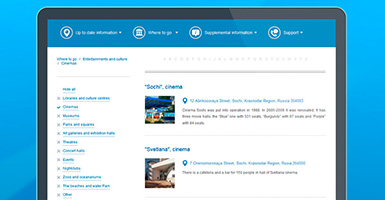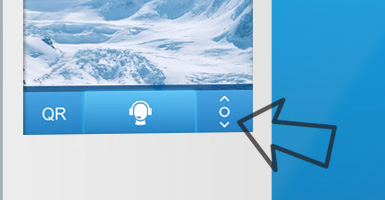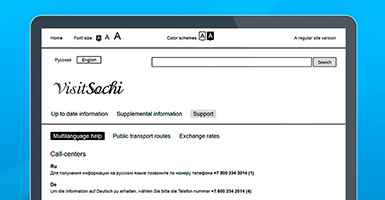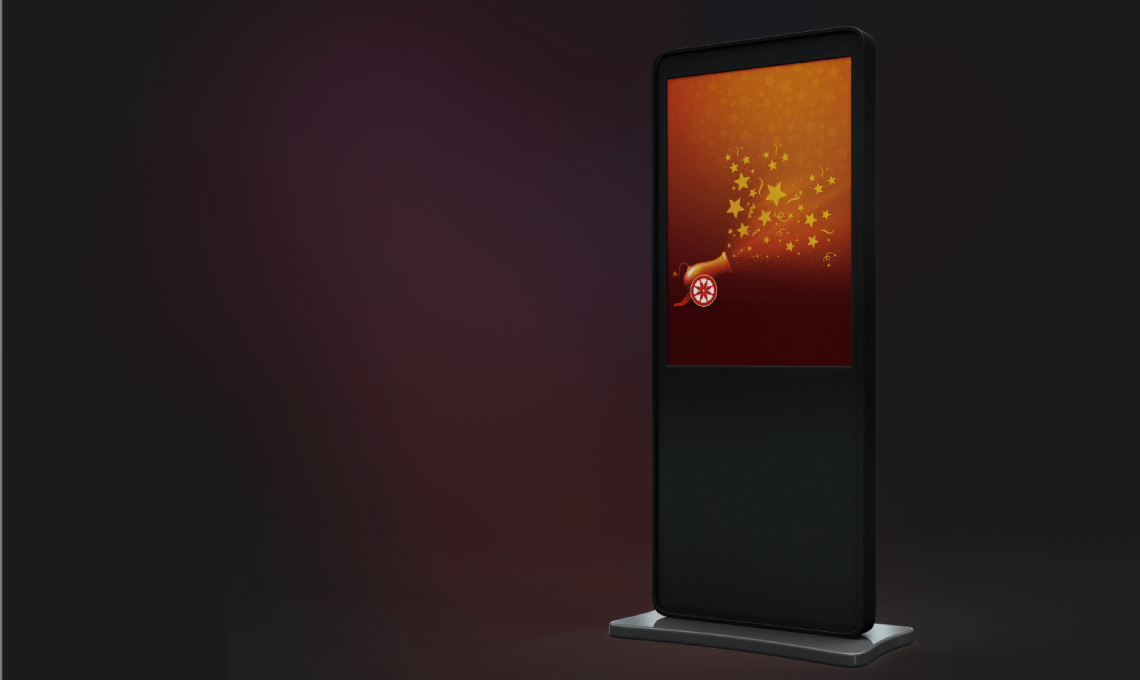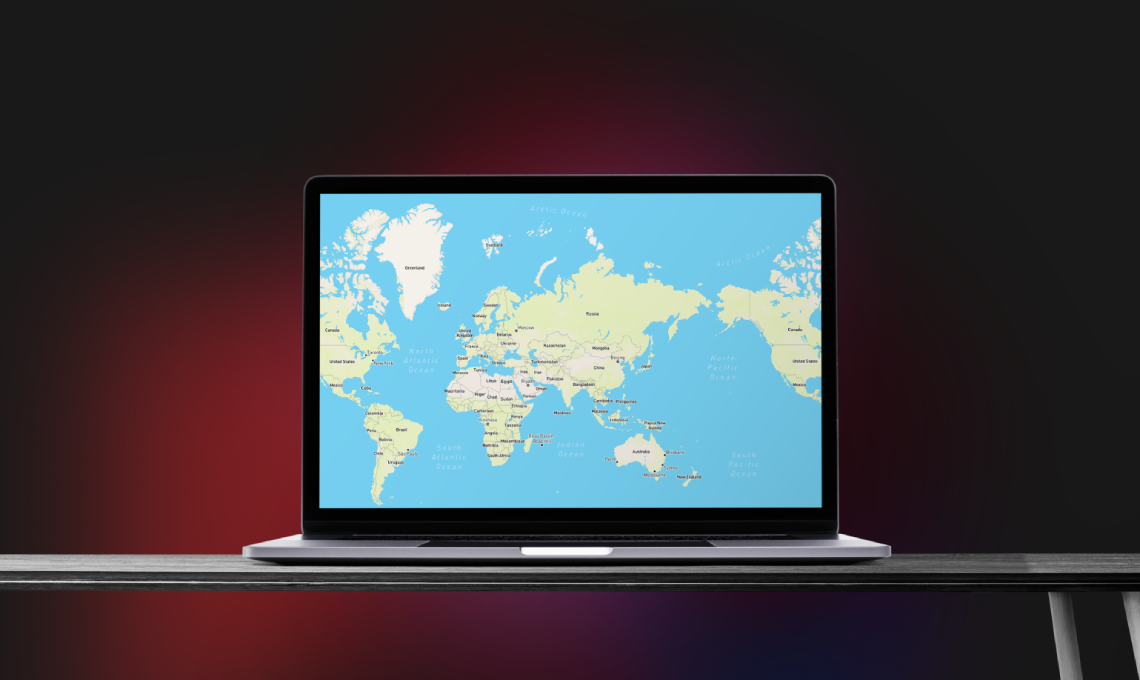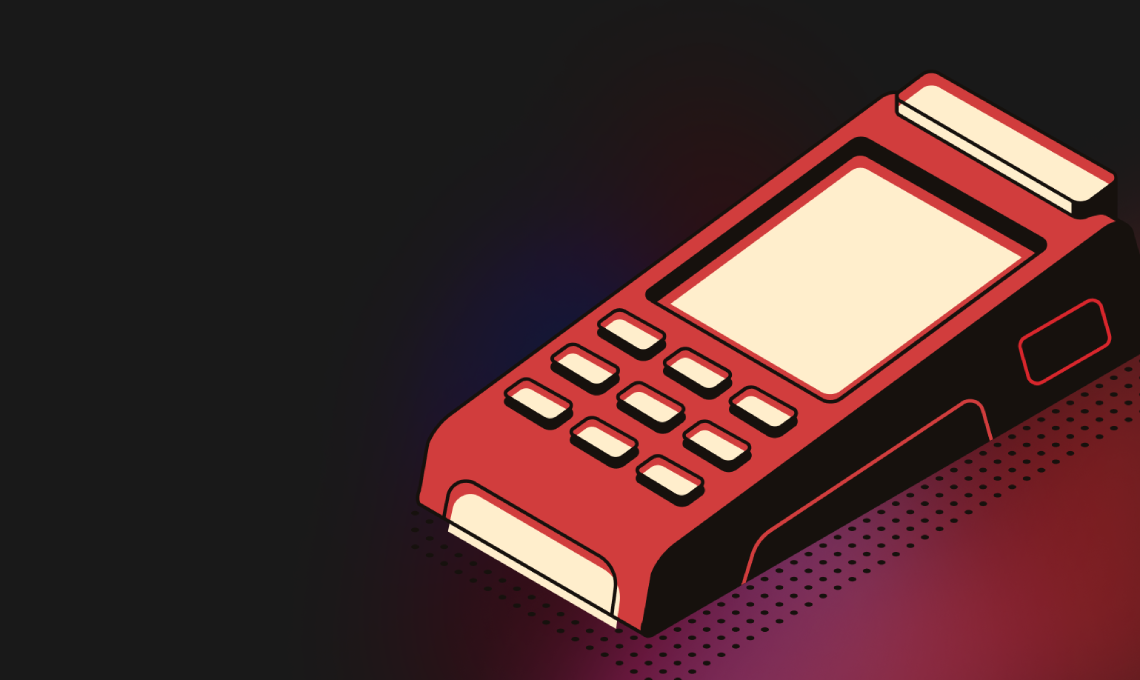About project
Facts
Customer

The government of the Krasnodar Region
Krasnodar region is a federal subject of Russia, located in the Southern Federal District. The region's population is about 5.5 million people on a territory of 75,485 sq. km.
The Region is characterized by industrial and agro-recreational types of development. The basis of the regional productive forces constitutes the industrial, construction and energy complexes, information and communication technologies, as well as agro-industrial, transport, resort and recreation, and tourist complexes. The last three - agriculture, transport, and hotel & tourist complexes - correspond to the priorities of the socio-economic development of Russia and determine the special status of the Krasnodar Krai in the national economy.
Also Krasnodar region city Sochi was the host city of the Winter Olympic Games of 2014.
Goal
To provide a comfortable information environment to get the city information using different gadgets for Sochi citizens and visitors during Olympic and Paralympic Games “Sochi 2014”.
Challenge
We had a very short timeframe of 4 months to solve technical and informational issues. It was necessary to gather, structure and translate a huge amount of information. As well, we had to build up a reliable hardware infrastructure for high-load services. Moreover, the most complicated task was to implement a software solution able to deliver prepared information to Sochi visitors through all possible communication channels.
Tasks
To build a project editorials office.
To gather, structure and translate the information about over 8,000 locations in Sochi.
To create public transport routes processing engine.
To build up hardware infrastructure able to guarantee service.
To implement software solutions for web-portal, mobile applications and touch terminals of two kinds.
To implement self-monitoring and self-diagnostic software.
To provide integration with external systems.
To deploy project-management solutions for all participants.
To guarantee information updates and system stability during the Olympic Games.
Implementation
We discovered, structured and translated the information about thousands of locations and most popular places in four months. We created the database of public transport stops with coordinates and the registry of public transport routes operated by all state and commercial companies. Furthermore, we organized the editorial office and provided real-time news feed.
In parallel, we built two independent nodes of server infrastructure in two remote data centres. We used two CISCO USE BLADE systems of 2 BLADE servers each complemented with NetApp FAS2240-4 storage systems.
However, the main part was the software. In the first stage, we deployed the project management and collaboration system based on Bitrix24. It allowed us to plan and control all project jobs and tasks.
In the second stage, we created a web-portal and implemented basic editorial processes of information preparation, checking, translating and approving.
The next step was mobile application development for 4 platforms, the most popular at that moment: Android, iOs, Windows Phone and Blackberry. The customer chose such a wide range of technologies to provide maximum user coverage. The applications used a remote database as a main information source and updated automatically whenever it was online.
At the same time, our team worked on building terminal software. One of the terminal applications was integrated with the existent Qiwi payment terminals; another was launched on its own hardware acquired specially for project purposes. The hardware, or the terminals, were installed all over the city, helping people navigate through it. One of the key features was special mode for people with special needs. The mode provided interface controls at the bottom of the screen, allowing navigation for people using a wheelchair.
In total, we deployed our software on more than 20 custom build terminals and hundreds of Qiwi payment terminals throughout the city.
The solution is built consists of four separate parts:
Results
Presentation
Technologies
- .ASP.NET
- Apache
- C#
- C++ (BlackBerry OS)
- Java (Android)
- Microsoft.NET
- Microsoft SQL Server
- MySQL
- Adobe Flash
- Google.Maps.API






